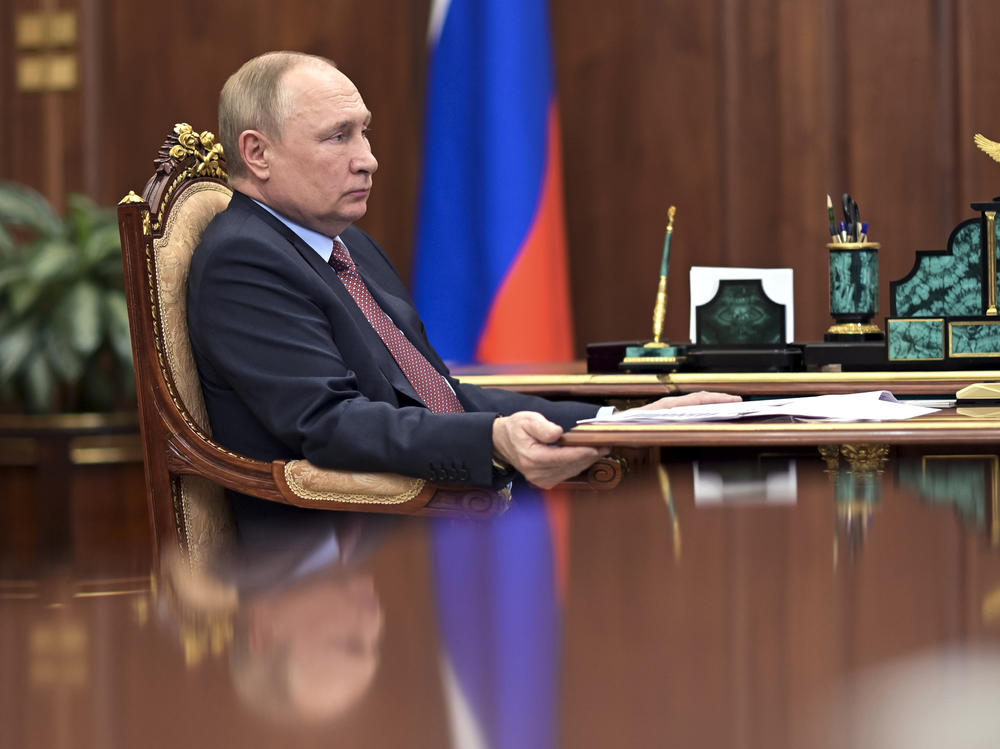Section Branding
Header Content
Opinion: Is Vladimir Putin a war criminal?
Primary Content
Will Vladimir Putin ever stand trial for war crimes?
President Biden sounded solemn after he saw images of the killings of Ukrainian civilians by Vladimir Putin's Russian troops in the town of Bucha, many shot at close range; their hands bound; and piled into shallow mass graves.
"I think it is a war crime," the president told reporters. "He should be held accountable."
But does any threat of war crimes trials deter Putin, or his Russian troops, from acts of savagery? Dozens more people died just yesterday in a Russian attack on a train station in Kramatorsk.
The International Criminal Court has opened a war crimes investigation into Russian actions in Ukraine and can issue arrest warrants. But the idea of Putin taking a "perp walk" out of the Kremlin and put on trial at the Hague?
"I just don't see this happening," Michael Ignatieff told us this week. He was the head of the Carr Center for Human Rights Policy at Harvard University, an author, historian, and former leader of Canada's Liberal Party.
International Criminal Tribunals were created by the United Nations to prosecute war crimes: in the Balkans in the early 1990s, and Rwanda in 1994. But those trials occurred years after the massacres, mass graves, and genocides.
I covered the wars in the Balkans and was back in Sarajevo at a time when there seemed to be daily sightings of Ratko Mladic, the Serb general, and Radovan Karadzic, the first president of Republika Srpska. They had been indicted for orchestrating the siege of Sarajevo, and the 1995 massacre at Srebrenica, where more than 8,000 Muslim men and boys were executed.
Both men evaded capture for more than a decade before being captured and put on trial. Karadzic, one of the authors of the murderous Serb policy called "ethnic cleansing," even concocted a new identity practicing alternative medicine in a Belgrade suburb.
Their convictions made plain the outrage of the world. But did putting them on trial for war crimes in Bosnia deter others from committing later atrocities in Syria, Afghanistan, Myanmar, Ethiopia, or Yemen? Does announcing investigations into war crimes truly help those Ukrainians being assaulted every day before the eyes of the world?
"Just investigating war crimes now is a diversionary activity. Virtue signaling," Ignatieff said. "When Ukrainians need anti-aircraft rockets, MIG aircraft, and tanks, not gestures, to survive."
Copyright 2022 NPR. To see more, visit https://www.npr.org.

